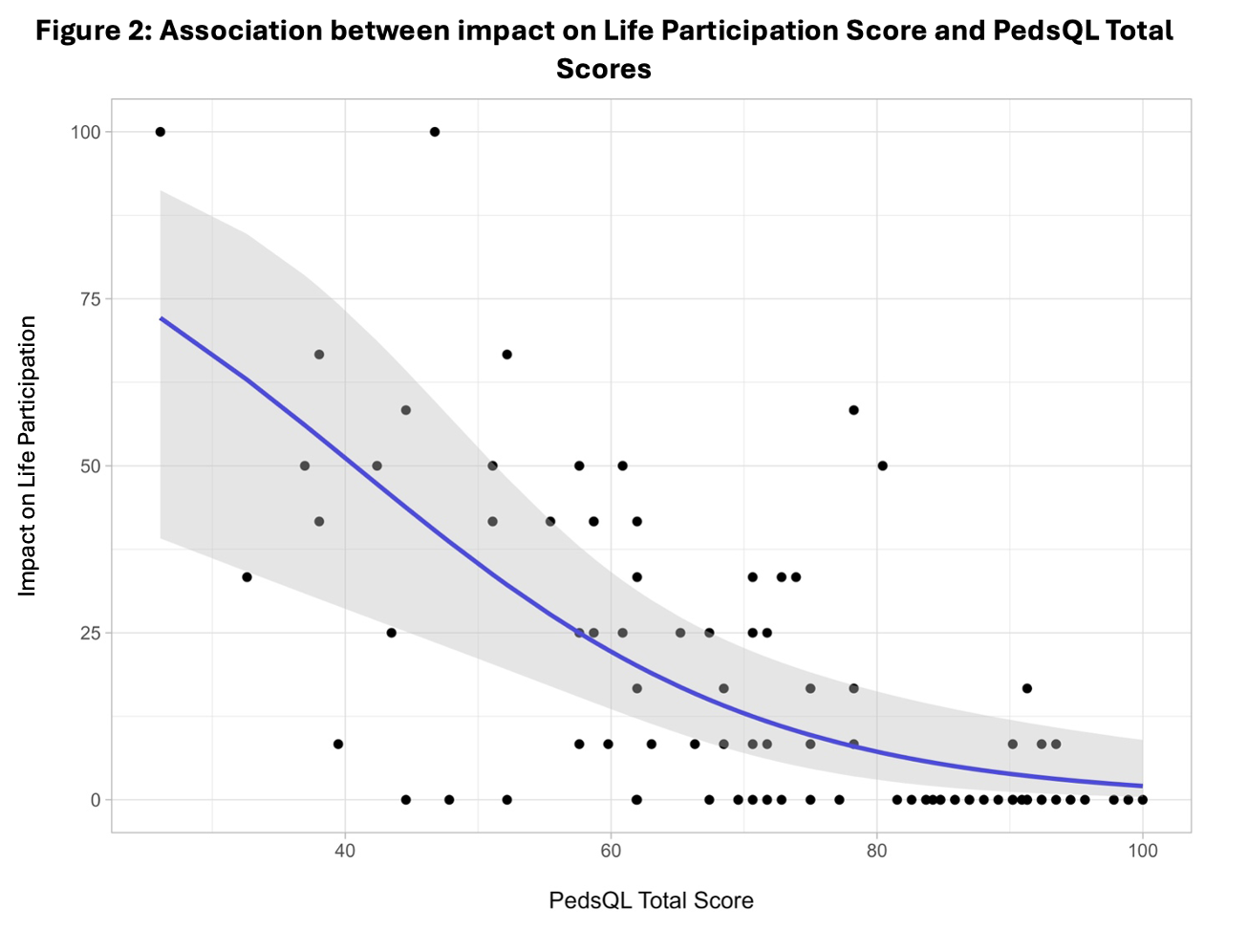Nephrology 4
Session: Nephrology 4
614 - Evaluating Construct Validity of the PRO-Kid Life Participation Tool for Children Living with Chronic Kidney Disease
Sunday, April 27, 2025
8:30am - 10:45am HST
Publication Number: 614.4691
Karma Abukasm, University of British Columbia Faculty of Medicine, Vancouver, BC, Canada; Kimberley Widger, University of Toronto, Toronto, ON, Canada; Adam Rapoport, The Hospital for Sick Children, Toronto, ON, Canada; Rahul Chanchlani, McMaster Children's Hospital, Hamilton, ON, Canada; Janis Dionne, University of British Columbia Faculty of Medicine, Vancouver, BC, Canada; Susan M. Samuel, University of British Columbia Faculty of Medicine, Vancouver, BC, Canada; Lorraine Hamiwka, Alberta Children's Hospital, Calgary, Alberta Canada, AB, Canada; Sara N. Davison, University of Alberta Faculty of Medicine and Dentistry, Edmonton, AB, Canada; Veronica Ka Wai Lai, AdventHealth for Children, Saint John, NB, Canada; Simon Carter, The Royal Children's Hospital Melbourne, Parkville, Victoria, Australia; Banke Oketola, Max Rady College of Medicine, Rady Faculty of Health Sciences, University of Manitoba, Winnipeg, MB, Canada; Brenden Dufault, University of Manitoba, Winnipeg, MB, Canada; Mina Matsuda-Abedini, University of British Columbia Faculty of Medicine, Vancouver, BC, Canada; Allison Dart, Max Rady College of Medicine, Rady Faculty of Health Sciences, University of Manitoba, Winnipeg, MB, Canada

Karma Abukasm, MD (she/her/hers)
Clinical Fellow
University of British Columbia Faculty of Medicine
Vancouver, British Columbia, Canada
Presenting Author(s)
Background: Life participation (LP) is a high priority outcome identified by children and families living with chronic kidney disease (CKD) through the SONG-Kids initiative. Social, leisure, and self-care activities are most frequently reported as surrogate measures of LP, yet no validated tools exist to capture LP in pediatric CKD.
Objective: The objective of this study is to describe LP scores of children living with stage 3-5 CKD, and to evaluate the construct validity of the PRO-Kid LP tool.
Design/Methods: Cross-sectional analysis of LP data collected from the PRO-Kid validation cohort which included 100 children aged 8-18 years with stages 3-5 CKD, including those on dialysis, from 5 sites in Canada. The PRO-Kid LP tool includes three questions on LP: 1) school participation, 2) meaningful time with family and friends, and 3) participation in hobbies/recreational activities. Participants were asked to quantify the impact of their CKD on their ability to participate in LP activities in a one-week timeframe using a 5-point Likert scale. Scores were converted to percentages, with higher scores reflecting lower levels of LP. Participants also completed the PedsQL™️, a quality of life assessment tool, and PRO-Kid symptom assessment tool, which included the question “Feeling left out”. Clinical characteristics, medications, and diet restrictions were collected. LP scores were evaluated by stage of CKD. Construct validity was evaluated with Spearman correlations. Internal consistency was evaluated with Cronbach’s alpha (Cα).
Results: Mean age was 13.7 years (SD 3.14 yrs), 63% male. Twenty-six (26%) were on dialysis. Impact on LP increased by CKD stage (p=0.003) (Fig. 1). There was a strong inverse relationship between LP score and PedsQL™️ scores (r=-0.65, p< 0.001) (Fig. 2), and moderate positive relationship between CKD symptoms and LP (PRO-Kid frequency [r=0.51, p< 0.001] and impact [r=0.49, p< 0.001] scores). The LP scores were associated with the PRO-Kid “Feeling left out” question (p < 0.001) (Fig. 3). Internal consistency using Cronbach’s alpha for the three LP questions was high (Ca=0.81), which suggests reliability of the questions. LP scores were also strongly correlated with nighttime medication administration (p=0.003) and the presence of dietary restrictions (p < 0.001).
Conclusion(s): This novel pediatric PRO-Kid LP tool shows internal consistency, with positive correlation with symptom burden, and negative correlation with quality of life. It addresses a priority for patients and families and has the potential to allow medical teams to better assess LP as part of pediatric CKD care.
Abukasm ASPN PAS support letter 2024.pdf
Figure 2. Association between impact on Life Participation Score and PedsQL™️ Total Scores
 The PRO-Kid LP scores are expressed as percentages (0-100) converted proportionally to their numeric values on the 5-point Likert scale. The total score includes the three questions’ scores, with higher scores translating to a higher impact on life participation.
The PRO-Kid LP scores are expressed as percentages (0-100) converted proportionally to their numeric values on the 5-point Likert scale. The total score includes the three questions’ scores, with higher scores translating to a higher impact on life participation.The PedsQL™️ Total Score is reported on a scale from 0-100, where higher scores translate to higher quality of life.
Figure 3. Impact on Life Participation Score by PRO-Kid "Feeling Left Out" question score
.png) The PRO-Kid LP scores are expressed as percentages (0-100) converted proportionally to their numeric values on the 5-point Likert scale. The total score includes the three questions’ scores, with higher scores translating to a higher impact on life participation.
The PRO-Kid LP scores are expressed as percentages (0-100) converted proportionally to their numeric values on the 5-point Likert scale. The total score includes the three questions’ scores, with higher scores translating to a higher impact on life participation.The Pro-KID “Feeling Left Out” question is part of the PRO-Kid validated questionnaire for 8-18 years old patients with chronic kidney disease stages 3-5. It is reported on a 5-point Likert scale, with higher scores translating to higher frequency/impact of feeling left out.

